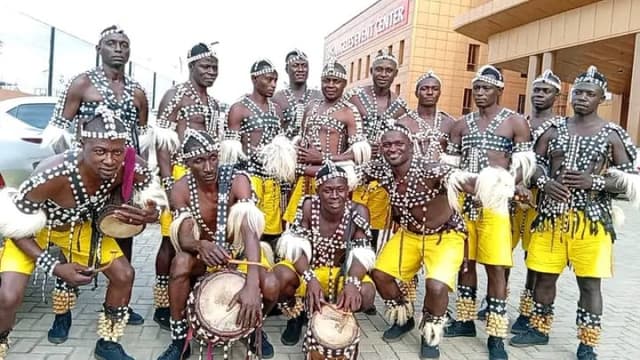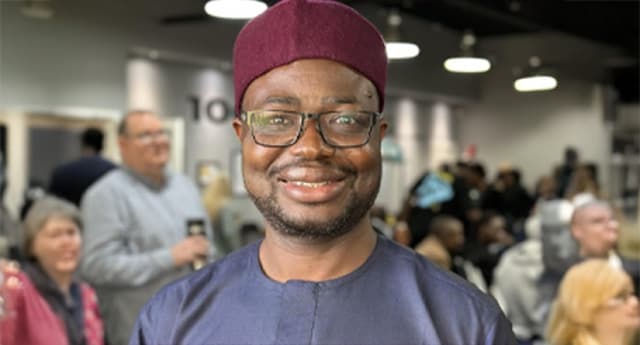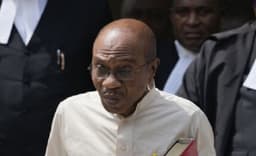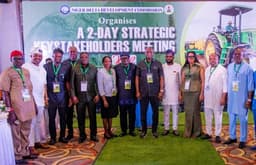
Since Lolu Akinwunmi’s Prima Garnet dragged Airtel Networks Limited to court over issues arising from a dispute with its former affiliate agency, Ogilvy Africa, the local media have been awash with stories that seem poised to rattle the unsightly skeletons of xenophobia in Nigeria. Perhaps what makes it more alarming is that Nigeria already has enough issues to scare foreign direct investment. The addition of the dry bones of xenophobia, no matter how perfectly disguised, to Nigeria’s many headaches will most certainly tip investment inflow to anywhere else but Nigeria. And this is why – barely a month ago, Airtel Networks Limited, the Nigerian outpost of Indian telecom giants, Bharti Airtel, announced that it had invested over $1.5bn to shore up its operations in readiness for the expected benefits of the recently introduced Mobile Number Portability. This impressive investment was one in a series of massive injection of foreign capital into the once moribund telecoms operator which Indian telecoms magnet, Sunil Bharti Mital acquired from Zain in 2010. With the arrival of the Indians, life had surged back into what was left of the badly mismanaged Zain, leading to the creation of more jobs and an almost instantaneous re-ordering of the telecoms business in Nigeria.
It is this growing success story that Lolu Akinwunmi and his Prima Garnet are bent on halting with the recent string of litigations against Airtel in a matter that has very little to do with the telecoms operator. Mr. Akinwunmi’s legal action and the alleged behind-the-scene manipulation of the Advertising Standards Panel (ASP) into rejecting Airtel’s creatives constitute a serious threat to the huge investment that the Bharti Group has plowed into the Nigerian economy and a strong dis-incentive to prospective investors.
For people who are not familiar with the details of the face-off between Prima Garnet, one of Nigeria’s leading advertising agencies and its former affiliate, Ogilvy Africa, it might seem curious that a case between two advertising agencies could threaten the existence of another company that is not in competition with them. Truth is, Airtel Networks Limited, which is the trading name of India’s Bharti Airtel in Nigeria, does not have any direct business relationship with Prima Garnet. However, their relationship came into being on account of the pre-existing contractual engagement which Ogilvy Africa had with the Airtel Group in Kenya which handed the lucrative advertising account of one of Nigeria’s leading telecom operators to Prima Garnet without a pitch. Industry insiders claim that in the beginning, the advertising agency had seemed capable of raising its game to effectively position Airtel as the leader it sought to be in the nation’s telecoms industry but as the competition in the industry grew more intense in the intervening years, Prima Garnet had seemingly become overwhelmed by the sheer weight of carrying the advertising needs of the emerging telecoms giant. It wasn’t long before the muffled grumble over the quality of service the agency was rendering grew into a loud symphony of bitter complaints and strident objections to failed expectations. Insider sources say that long before the hammer fell on the partnership, minders of Prima Garnet knew that the game was up and were pre-figuring what to do to throw spanner in the works of anyone who stood the chance of taking over the account.
Industry analysts who have followed the deteriorating relationship between Ogilvy Africa and Prima Garnet are surprised at the seeming bitter route the latter has taken to prove what in actuality is nothing more than an ego point. There is a near-destructive resolve that in its single-mindedness pays scant attention to the big picture of the unfolding global economy and the interconnectedness of things. In instituting a rash of legal actions against Airtel Networks Limited with whom it had no contractual obligations in the first place and surreptitiously stifling the company by allegedly inducing the rejection of Airtel’s creatives by the Advertising Standards panel (ASP) at a time when the telecoms industry is undergoing a major paradigm shift unleashed by the introduction of Mobile Number Portability, Prima Garnet is wittingly and unwittingly raising the red flag to prospective investors who are willing to brave the deluge of grim stories spewing out of Nigeria to come and invest in this economy.
This becomes even more so when it is considered that Prima Garnet does not have a direct binding agreement with Airtel Networks Limited. It makes little sense, therefore, that Airtel is made to bear the brunt of a sour relationship between two advertising agencies that had fed fat on its enormous financial muscle when the going was good between them. A cursory reading of the on-going legal war would point a finger in the direction of xenophobia for reasons bothering on the fact that it is doubtful that Lolu Akinwunmi would have dragged Airtel into his simmering discontent with Ogilvy Africa if Airtel had been an indigenous company fully owned by a Nigerian or Nigerians.
It is curious but true that even with the crumbling of walls between peoples and cultures and the lightning quick bridging of the digital divide between economies, xenophobia has continued to rear its head in different parts of the world and cause a measure of scare to investment flow across economies. In 2007, a group of eight Indians came under severe xenophobic attacks by a mob of 50 German youths in the small town of Mugelen in the state of Saxony, chanting racist slogans. That incident lighted up the debate over the influence of xenophobia and right-wing extremism on investment inflow in the Eastern States of Germany and how such attacks could change the investment climate in all of Germany.
In the same vein, Australia has continued to struggle with the daunting weight of deep-seated xenophobia that has to a very large extent stalled its chances of becoming one of the world’s leading economies. In an August 2012 poll on growing xenophobic trends in the country, 60% of Australians had voted against investments from China and South-East Asian countries. Australian authorities are worried that this trend would exact adverse influence on the economy if allowed to go unchecked. Expressing the concerns of well-informed Australians, Keith De Lacy, the former chairman of Australia’s largest cotton farm, Cubbie Station in southern Queensland, said Australia would be nothing without foreign investors. “Unless we can accept the fact that we need foreign investment then we will be a poorer country and a less significant country,” De Lacy observed.
De Lacy’s argument found resonance in the views of Bahamas’ leading businessman, Dionisio D’Aguilar, who recently expressed strong disapproval with the xenophobic attitude of many Bahamians towards foreign investors, arguing that it was majorly to blame for the country’s drop in the Ease of Doing Business ranking released by the World Bank. The Bahamas had slipped six spots to the 77th place in the 2013 Ease of Doing Business ranking, prompting D’Aguilar to observe: “One of the reasons why this is happening is we are a xenophobic people. While we want foreigners to come to purchase land to invest, we don’t treat them correctly when they arrive. When they run into that bureaucracy, it’s most off-putting.”
The point being made is not only that xenophobia is stifling the flow of foreign investment into some countries of the world but that concerned citizens of such countries are speaking up against it. However, as expected, Nigeria’s case is different. This dreaded virus is being planted by a Nigerian businessman who should know better. The other twist in the tail is the open secret of Mr. Akinwunmi’s conflict of interest in the entire saga. Akinwunmi is alleged to be sitting in judgment over his enemies as the Chairman of APCON, frustrating Airtel’s efforts to advertise its wares and offer employment to thousands of Nigerian youths. In fact, there is a strong feeling in the industry that Akinwunmi would not have fancied his chances at taking on Airtel if he were not APCON Chairman with unrestrained powers to asphyxiate the brand he could not muster enough creativity and purpose to build.
The truth, however, is that with all the grotesque challenges bedeviling Nigeria at the moment, Nigeria cannot afford the label of ‘xenophobia.’ Not this moment in time.
•Aremu Alakija is Reputation Consultant based in Lagos.



























NEWS EXPRESS is Nigeria’s leading online newspaper. Published by Africa’s international award-winning journalist, Mr. Isaac Umunna, NEWS EXPRESS is Nigeria’s first truly professional online daily newspaper. It is published from Lagos, Nigeria’s economic and media hub, and has a provision for occasional special print editions. Thanks to our vast network of sources and dedicated team of professional journalists and contributors spread across Nigeria and overseas, NEWS EXPRESS has become synonymous with newsbreaks and exclusive stories from around the world.